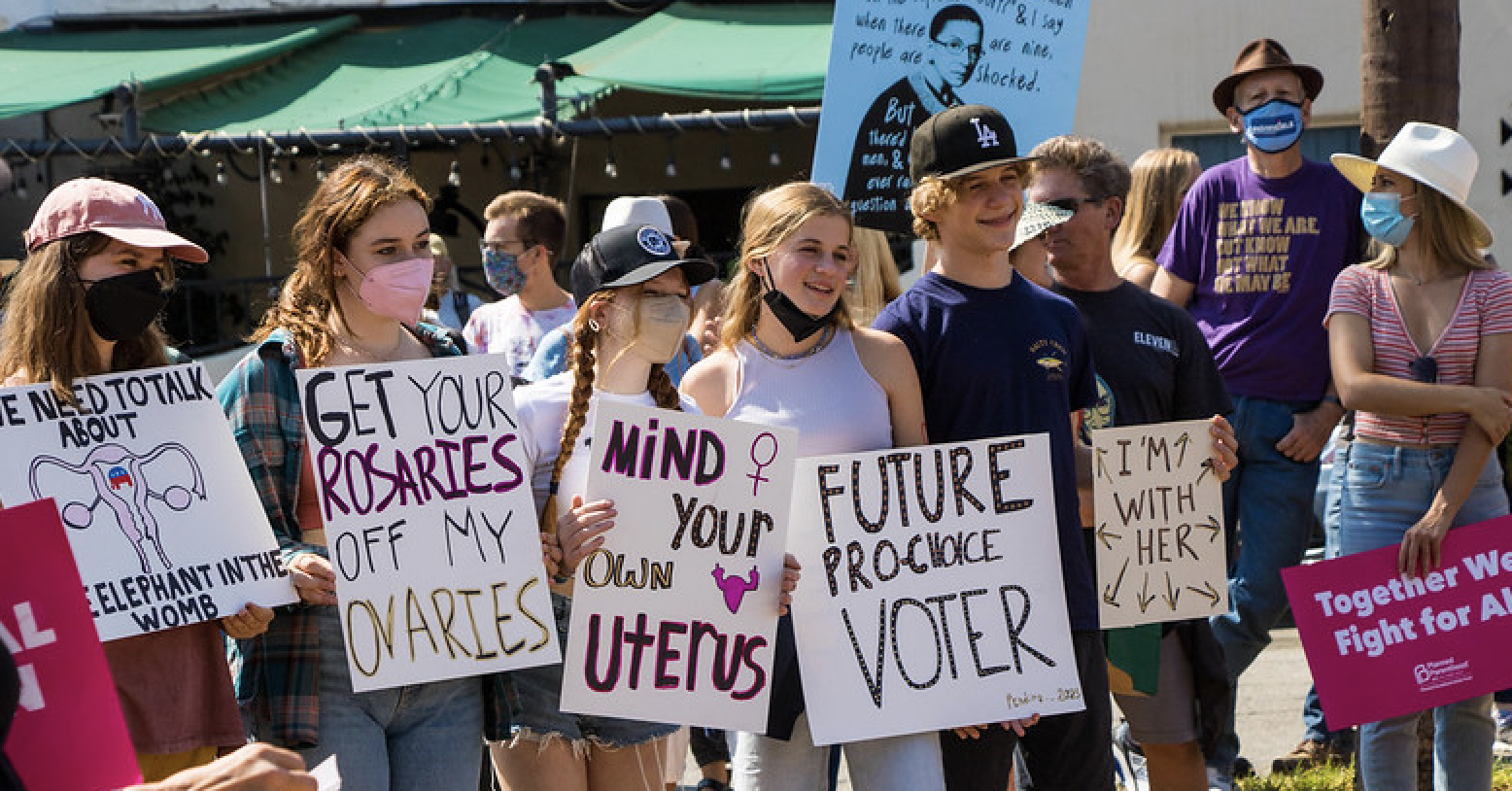This article is a part of the HPR Jewish American Heritage Month Collection and represents the independent perspective of the author.
As the Supreme Court prepares to overturn Roe v. Wade and the Senate kills the Women’s Healthcare Protection Act, the future of American reproductive justice looks bleak. Today, many legislators who promote restrictive abortion laws often cite Christian theology as the underpinning for their political beliefs. For instance, anti-choice Congresswoman Vicky Hartzler declared that aborted fetuses “were human beings with a purpose from our Creator.” She proceeded to religiously justify a restrictive abortion law in Mississippi by saying that “laws like Mississippi’s demonstrate that the American people still believe in the God-given dignity of every person, born or unborn.” However, such statements are not fully representative of abortion discussions within Judeo-Christian texts. In fact, Judaism is an inherently pro-choice religion, and Jewish women have historically lead the battle for reproductive justice.
I come from a long line of Jewish human rights activists. My grandpa rescued 40,000 Jews during the Holocaust and was a leader of the Jewish Defense League. My father was pursued by the FBI for protesting the persecution of Soviet Jewry. In response to rising hostility toward inter-faith marriages in our neighborhood’s existing Jewish community, our family joined with other Jewish families to create an inclusive synagogue. Similarly to those in my family, I am guided by the Jewish belief of “Tzelem Elohim,” which states that all people have equal dignity and value because we are all made in God’s image. My Jewish values not only inspire but “command” me to fight for reproductive justice. A post-Roe world would have deadly consequences for individuals who can get pregnant. Significantly, abortion restrictions disproportionately harm people of color. We, as Jews, cannot accept this discriminatory, dangerous future.
Judaism champions egalitarian values. In fact, reproductive justice is written into Jewish scriptures, particularly within the Torah and Mishnah. The Torah states in Exodus:
“When men fight, and a pregnant woman is pushed, and a miscarriage results but no other damage ensues, the one responsible shall pay a fine, according to what the woman’s husband deems appropriate [to compensate for the loss of the pregnancy].But if other damage ensues, the penalty shall be life for life, eye for eye…”
The life of a fetus and the life of a mother are prioritized differently within Judaism. If the mother is killed, the murderer is charged with homicide and thereby sentenced to death. However, if the mother survives an attack but miscarries as a result of the assault, the attacker is charged with a financial penalty. Accordingly, acclaimed 11th-century writer Rashi, author of a comprehensive commentary on the Talmud and Hebrew Bible, states that the Torah does not view abortion as murder or a capital crime. This is consistent with the Jewish definition of life: the Talmud declares that a fetus is merely water until the fortieth day after conception. The fetus is not considered a living being until it is fully delivered.
Such ancient Jewish laws continue to be relevant. The Rabbinical Assembly has codified the value of a mother’s wellbeing into Jewish law with the Assembly’s Resolution on Reproductive Freedom. The resolution affirms that abortion can be an act of mercy and compassion, and clarifies that a fetus does not have the legal status of a human until birth.
Similarly, the Mishnah commands that:
“If a woman suffers hard labor in travail, the child must be cut up in her womb and brought out piece-meal, for her life takes precedence over its life; if it’s greater part has (already] come forth, it must not be touched, for the [claim of one] life can not supersede [that of another] life.”
In these texts, the Torah acknowledges that the fetus has the potential to become a living creature. Judaism places an infinite value on every human life; therefore, Judaism understands the harm that a pregnancy may have on someone’s body and orders them to protect and prioritize their health and wellbeing over a potential life.
Within this framework, it is also critical to consider that abortion bans disproportionately harm marginalized communities — specifically Black and Latino communities. The University of Colorado reports that a federal abortion ban would increase pregnancy-related deaths by 21% overall and cause a 33% increase in pregnancy-related deaths among Black women. In the 21st century, we recognize that abortion bans have deadly consequences for Black, Indigenous and people of color communities. Therefore, Judaism commands me — and other Jews — to stand in solidarity with the reproductive justice movement.
Given these Jewish values, it should be no surprise that Jewish people have always been at the forefront of the battle for abortion access — from Bella Abzug to Heather Booth to Elizabeth Holtzman. While these women are the faces of reproductive justice advocacy, they represent a much larger movement of angry, progressive Jewish activists. Nearly four in five American Jews staunchly support abortion rights. We, as Jewish people, support abortion rights, because we value the lives of our BIPOC siblings and recognize that they are most vulnerable to physical harm as a result of abortion bans. It is our religious and cultural commandment to carry the torch of those before us, to continue fighting for our Jewish values and demanding reproductive justice — in the streets, in the courts, and in Congress.
Correction: June 17, 2022
An earlier version of this article misspelled “Halakhic.” It is “Halakhic,” not “Halakhahic.”
Image by Louise Palanker is licensed under the Flickr License.



